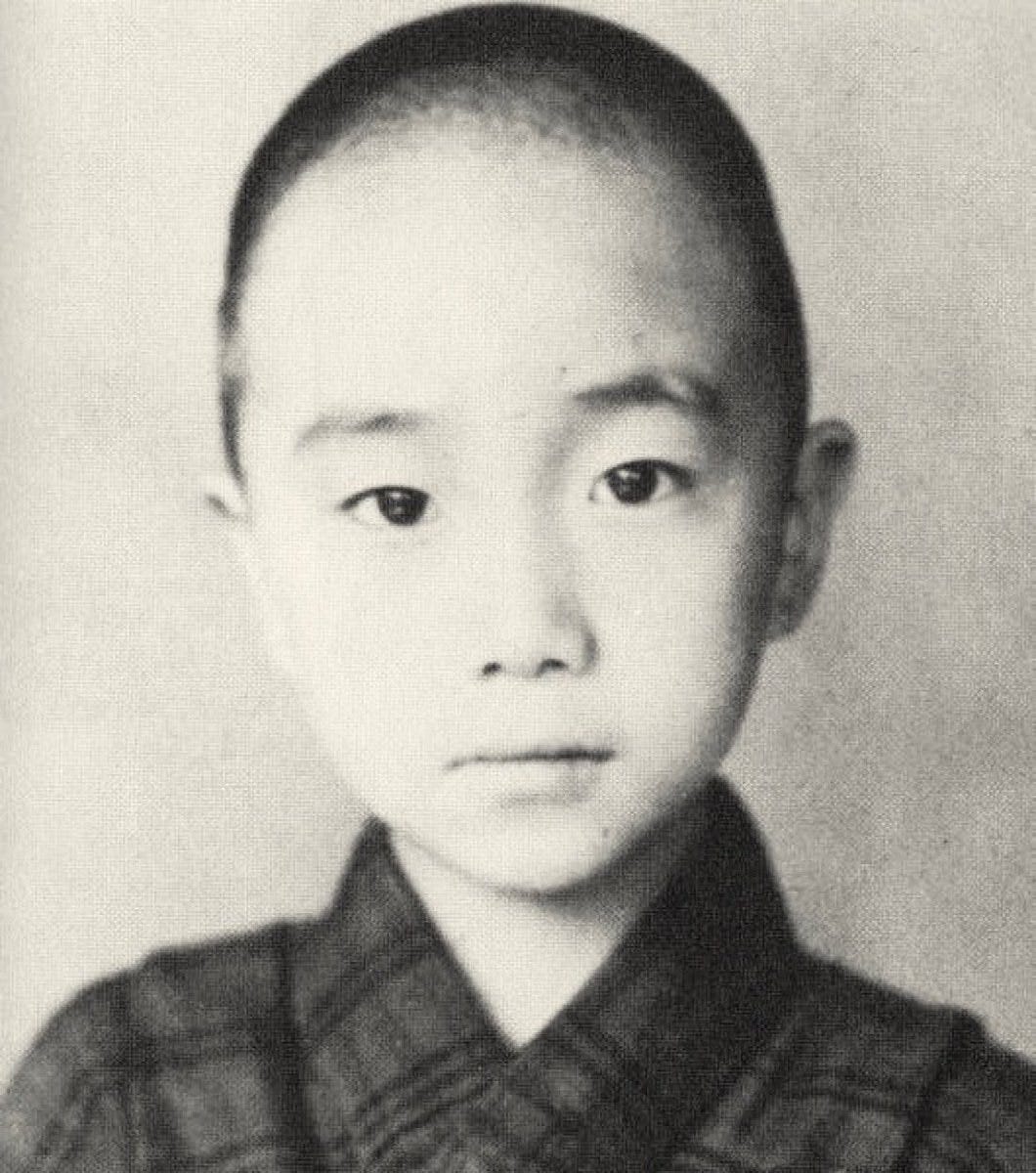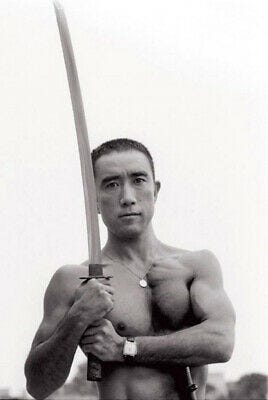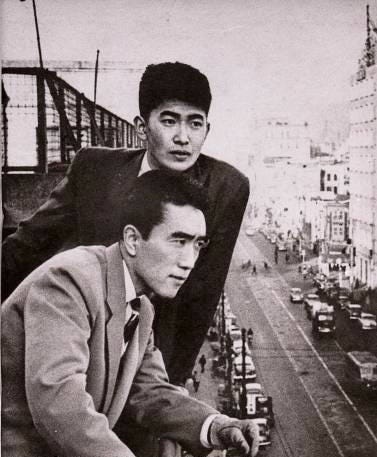What Mishima Means to Me
A man with the spirit of a dragon, born into a cave too suffocating to withstand
“And the greatest sin is that of a man who, finding himself in a world where the sacred light of his majesty is obscured, nevertheless determines to go on living without doing anything about it. - Runaway Horses, 1969
On this day in 1925, Kimitake Hiraoka, known by most as Yukio Mishima was born.
He was a boy of many neurotic fears, with a personality and intellect that like many artists had a rough time breaking out of its shell. He was obsessed with the magic produced by his written thoughts and lived in his mind as many boys of such a character do, but as the years passed his thirst for what was missing grew along with him. The thirst for reality, of flesh, and the language of the body rather than the mind.
He learned, through weightlifting and martial arts, what it truly meant to live in one’s body. To feel the fibers of the muscles as they contract, the split second when a fist misses you in boxing leaving the opening for a strike of your own. The exuberant thrill it induces in the top of the gut when you realize the futility of such perfected flesh at the moment of death, yet the vital need to achieve such heights regardless. This is the most beautiful tragedy for man; and to Mishima, beauty and tragedy were one and the same.
“I sensed it in an absolute rest for the spirit, a beautification of the flesh. Summer, white clouds, the empty blue of the sky following the final lesson of the day, and the touch of nostalgic sadness tinging the glitter of sunlight filtering through the trees, induced a sense of intoxication. I existed…” - Sun and Steel, 1968
I came to many of these conclusions, both as a boy and in adolescence not through thought, but by feeling. I, as many of us, was that boy who was too neurotic to stand up for himself, to express their artistic self in a dignifying and masculine way without shame or fear of criticism from the pits of the unworthy. One would say that this writer ‘took the words out of my mouth’; but after reading Mishima, it was as if he took the words out of my heart. Each time I closed one of this man’s books, it feels as if I owed him a debt.
Mishima found the path to expressing his soul through his body the brutal way, with Sun and Steel. There is no alternative path!
“An ugliness unfurled in the moonlight and soft shadow and suffused the whole world. If I were an amoeba, he thought, with an infinitesimal body, I could defeat ugliness. A man isn’t tiny or giant enough to defeat anything.” - The Sailor Who Fell From Grace With the Sea, 1963
Mishima witnessed the fall of his nation in WW2 when he was 20 years old. He was coming into his own as a man, a strong believer in his ancient traditions and the soul of his country. He saw first hand as his countrymen were put over a barrel by the Americans, and incoming right behind them were the western horrors the results of which we experience in our day. Of mass democracy, globalism, and communism that many of his people tried to embrace as a means of “moving on” from what they once were. This was the direction set for them as they thought and they set out for it, yet Mishima stood in the throngs and in his usual fiery spirit declared it all to be one giant load of bullshit. Yet, he did not do it in tireless pedantic rants. He gave these people and what they believed in their due, he acknowledged all that was tempting in the westernization cloaking them yet made clear that there was no proper ending to it. Nothing beautiful or marvelous to the eye or the soul, just ugliness and dishonor.
Above all, Mishima mourned for the lost masculinity of his nation. It is much like the free sailor he used to symbolize man’s capability of wrestling with life’s dangers and risking a tragic death. The moment they let go of it all for comfort and castration, when they replace the sound of the waves for that of crying children before the time when they’ve fulfilled their soul’s desires…this is what it means to “fall from grace”. Man experiences two deaths, the first when he slays his dreams for the sake of trivial desires, the second when God takes his soul from his body.
This is what angered me the most when reading about those who refuse to understand the end of his life, and what he was trying to accomplish. I am not Japanese. I do not, in a spiritual and metaphysical sense, understand Harakiri or the full philosophy behind it. But I understand sacrifice. I understand dishonor, and that when he committed that act it was not just his own dishonor he was attempting to wipe away, but that of the entire nation that he wished to intercede for! This is what young men need to learn from Mishima. What he represented goes beyond the emperor and militias, beyond opposing the stupidity of ideology. He set an example of himself to remind his people what they were, and what they could be again. Will we remember such things, when it comes to our nations? Or will we wait until it is too late?
“He [Mishima] reminded the Japanese, that we are still here! We will not go anywhere, you will not get rid of us! You will not reduce life back to the hovel!” - BAP







Thank you for this. I remember the effect that "Sun and Steel" had on me, forty years ago, along with it's predecessor "Hagakure." The lessons are timeless.